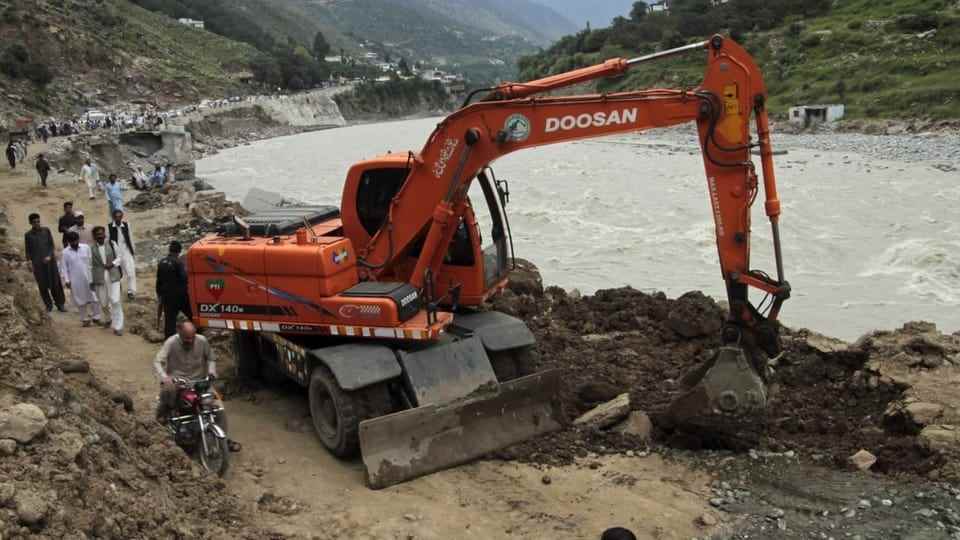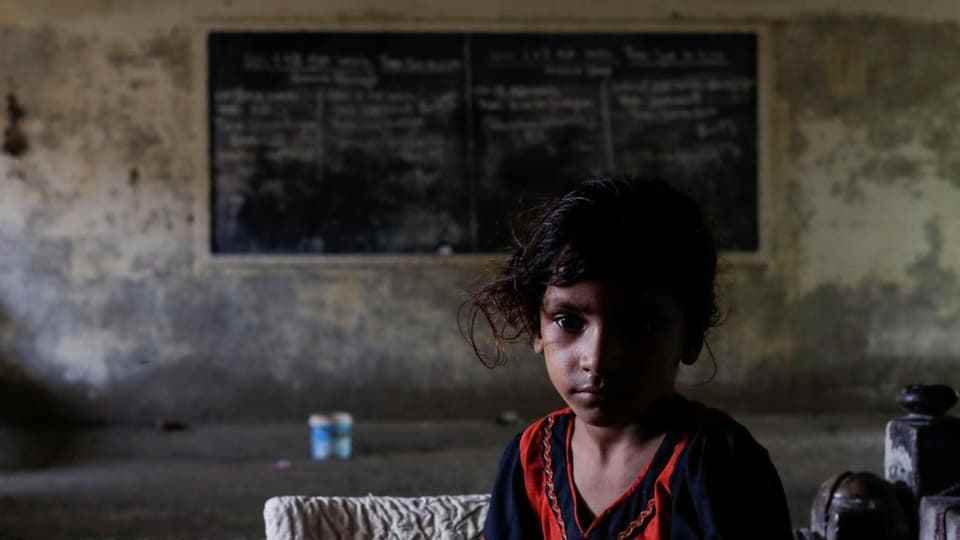The water level in Pakistan is falling only slowly. The destruction is tremendous. Around 33 million people are affected. More than 1100 perished in the floods. Almost a million homes were destroyed. Thousands of kilometers of roads are unusable. In the meantime, many aid organizations have become active. Including Solidar Suisse. Felix Gnehm explains what their help looks like. He is the director of the aid organization.
SRF News: As a Swiss aid organization, how does Solidar Suisse react to such a catastrophe?
Felix Gnehm: Solidar Suisse decided this week to take humanitarian action. We are in contact with our local partners and our office staff. We are pushing ahead with the emergency aid that is already running to urgently care for the local population. We have an office in Pakistan. We are ready to raise this emergency aid quickly. This requires a local presence, knowledge of the context and logistics.
What do people need most?
What they need most is food. But they also need food for their animals, medical care, clean drinking water, orientation and a safe roof over their heads.
A lot of people are currently on the move or they are camping at the side of the road, for example. They try to get into cities. Many roads are impassable. How do you reach people?
This is difficult. A third of the country is under water. Not only fields are flooded, but entire parts of towns and villages. Road bridges have been washed away. We are dependent on help from the army to repair the bridges.
Whole parts of the city and village are flooded.
You usually get to people because they help themselves. They have built rope hoists across the rivers and thus bring themselves to safety. It takes time to reach the villages. But somehow we get to many places.

Legend:
After the devastating floods of 2010 and the huge earthquake of 2005, Pakistan has experience in dealing with such emergencies.
Keystone/AP/Naveed Ali
How good is the cooperation with the Pakistani authorities?
Pakistan is a well organized country in terms of humanitarian aid. That is why the coordination will probably run like in the last major catastrophes. Local governments and provincial governments coordinate a lot. The UN is there, but so is the military. And in this case, Pakistan directly called for international help. This is unusual because the Pakistani government wants to signal strength. I count on good cooperation.
Have preventive measures been taken?
no Pakistan could have done a lot with ecological measures, reforestation, giving the rivers space or small dams. There would be better prevention.
No country is fully prepared for such major catastrophes.
But one must also say that this is a global dimension. Global warming is driving these extreme events. The Himalayan glacier melt and the heavy rains are not the fault of Pakistan. From there nobody can do anything about this monster event. No country is fully prepared for such major catastrophes.
What are the longer-term prospects? Where do you start?
On the one hand in the individual households. People want their livelihood back. They must be able to cultivate their fields again and have safe housing again.
We expect a long reconstruction phase.
But also the public infrastructure; many schools were flooded and destroyed. It will take years to rebuild hospitals and schools. We expect a long reconstruction phase. We have to think of everything: infrastructure, electricity, mobile network, roads, etc.

Legend:
Rebuilding schools is a problem. Especially in countries like Pakistan, where education for girls is difficult anyway. And where many children are affected by child labor.
Reuters/Akhtar Soomro
The interviewer was Salvador Atasoy.
